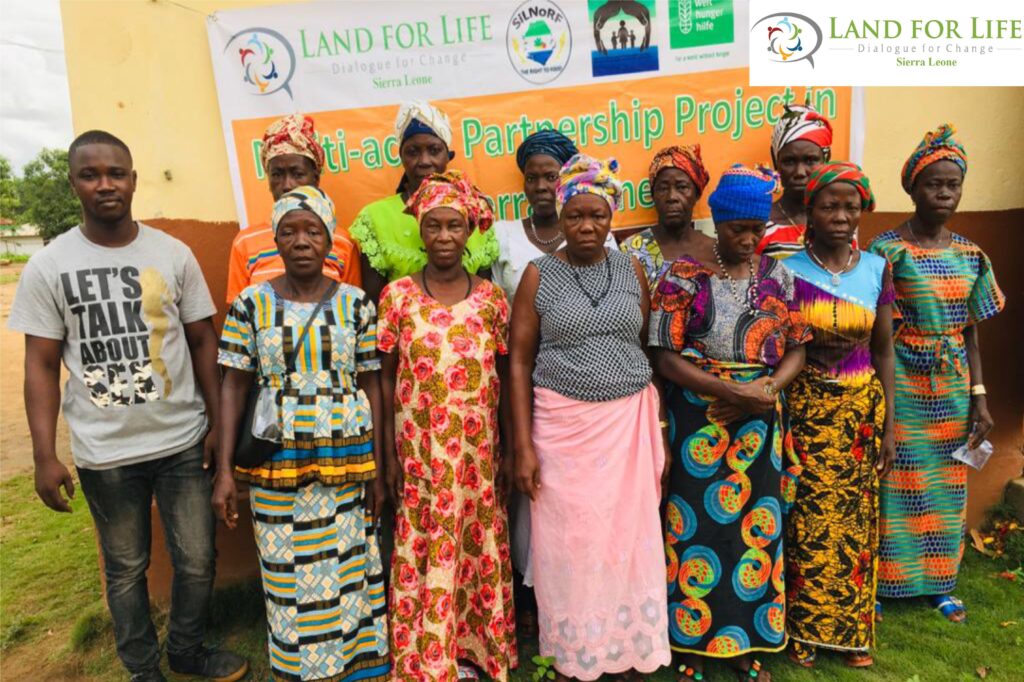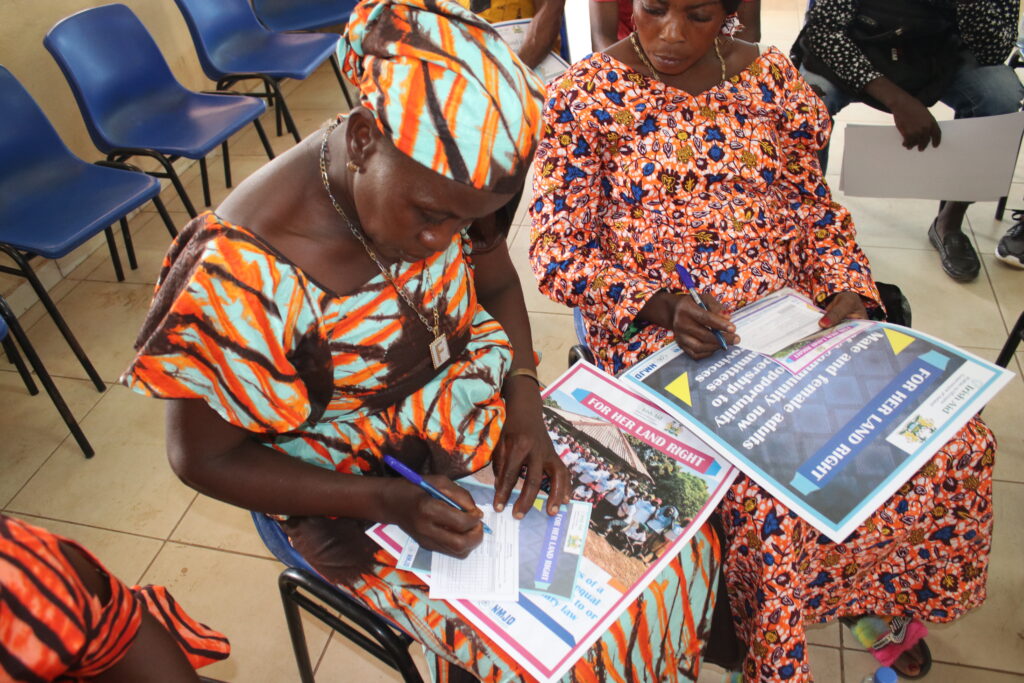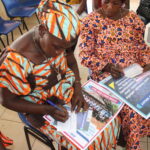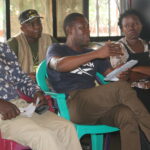ENHANCING WOMEN’S LAND RIGHTS IN SIERRA LEONE: THE INTERVENTION OF LAND FOR LIFE INITIATIVE

Women make up a sizable proportion of the population of Sierra Leone, particularly in rural villages where land is used for agriculture and some economic benefits. Nonetheless, these women seldom own the land on which they are working or have tenure security or control over it. Women frequently have little decision-making ability and influence over how the land or its outputs are used. Previously, traditional authorities and other key players at the village and chiefdom levels determined the right to land for women in customary contexts.
Women’s Involvement in the enactment of the Two Land Laws.
Women’s participation in the process that led to the passage of the two land laws was critical in expanding their fundamental rights to land. During the regional women’s consultation meeting in Kambia District, Hon. Abdul Karim Kamara of Constituency 059 in the Kambia District said that “Land laws must be based on the idea of gender equality in the right to land, with explicit goals for equal rights to land for both men and women”
Prior to the enactment of the Customary Land Rights Act in 2022, women in Sierra Leone held various interactions with stakeholders at both the local and national levels to ensure their involvement and consultation in all customary land matters in their communities. Many land actors regarded such bold actions as a novelty in the land governance sector of the country. “Finally, our voices can be heard and our faces can be seen in talking about land issues,” one of the female participants in Kambai District in the country’s North-West Region told the combined consultation team of CSO and Members of Parliament.

Land for Life Initiative Sierra Leone played a part in facilitating all of these so that women’s voices may be amplified in customary laws throughout all the districts, chiefdoms, and communities in Sierra Leone. Among the primary activities carried out by the organization were:
- Assisted women’s groups and rural women’s organizations in engaging in discussion with the government, members of Parliament, and other CSOs in order to provide a space for their views to be heard and replicated in the laws.
- Facilitated informed policy briefings for Members of Parliament on the status of women regarding their land rights.
- Highlight the importance of socio-economic representation and the recognition of all women and men irrespective of their tribe, religion, ethnicity, age, and marital status.
- Increased the number of women in the Multi-stakeholder platform across various districts where Land for Life is operating.
- Engaged Paramount Chiefs and Chiefdom Authorities on the position of women regarding their land rights in the country.
Implementation of the land laws
Yes, Sierra Leone has two new land laws that provide women a competitive advantage over their male counterparts. These laws are worth celebrating and popularizing across the country; but, laws alone will not protect women’s land rights in Sierra Leone. The efficiency of laws is determined by public knowledge, the ability to utilise them, and societal acceptability, including the extent to which cultural norms and traditions are observed and obeyed. In the middle of all of this, Land for Life has created a five-year strategic plan (2023-2028) that can help with the implementation of the Customary Land Rights and Land Commission Acts. The contribution of the organization will concentrate on:
- Mobilizing a critical mass of women to champion community engagement on women’s land rights and to claim their space in the National Land Commission.
- Supporting the capacity building of community stakeholders, particularly Chiefdom Authorities and those with land distribution decision-making power, in order to include women in all land talks.
- Print and distribute the two land laws together with an image-focused flyer among women and men across communities.
- Supporting reviews of how women’s customary complaint mechanisms might be implemented as per law demand.
- Supporting efforts to guarantee that politicians, Paramount Chiefs, and Chiefdom Authorities follow the existing land laws in all negotiations.
It is clear that the complete implementation of the Customary Land Rights Act will ensure women’s rights to access land, resulting in more socioeconomic independence for them, particularly those in rural areas with restricted access to land. Abie Turay, a widow with four children, stated during one of our community engagement events in Tonkolili District that:
“The knowledge I have gained from Land for Life regarding my rights to own, use, and inherit land, despite the fact that I am the only sister to four brothers, is something that will empower me to ask my brothers, in accordance with the law, to give me my own portion of land, which I will use to grow a few crops and vegetables.”
This statement is in accordance with section 5 (1) of the Customary Land Rights Acts 2022, which states: “ the rights to own, hold, use, inherit, succeed to or deal with land under customary law shall be guaranteed to women and men equally.” However, as previously noted, this will only be further ensured if women are empowered with the content of the law and how redress may be sought either within or outside of their communities.




